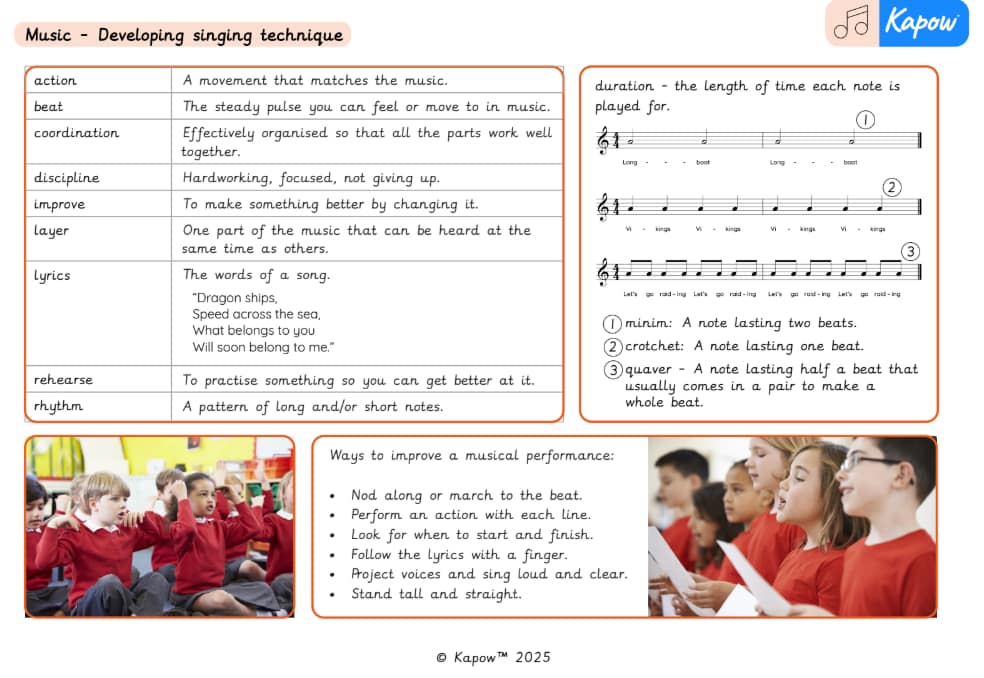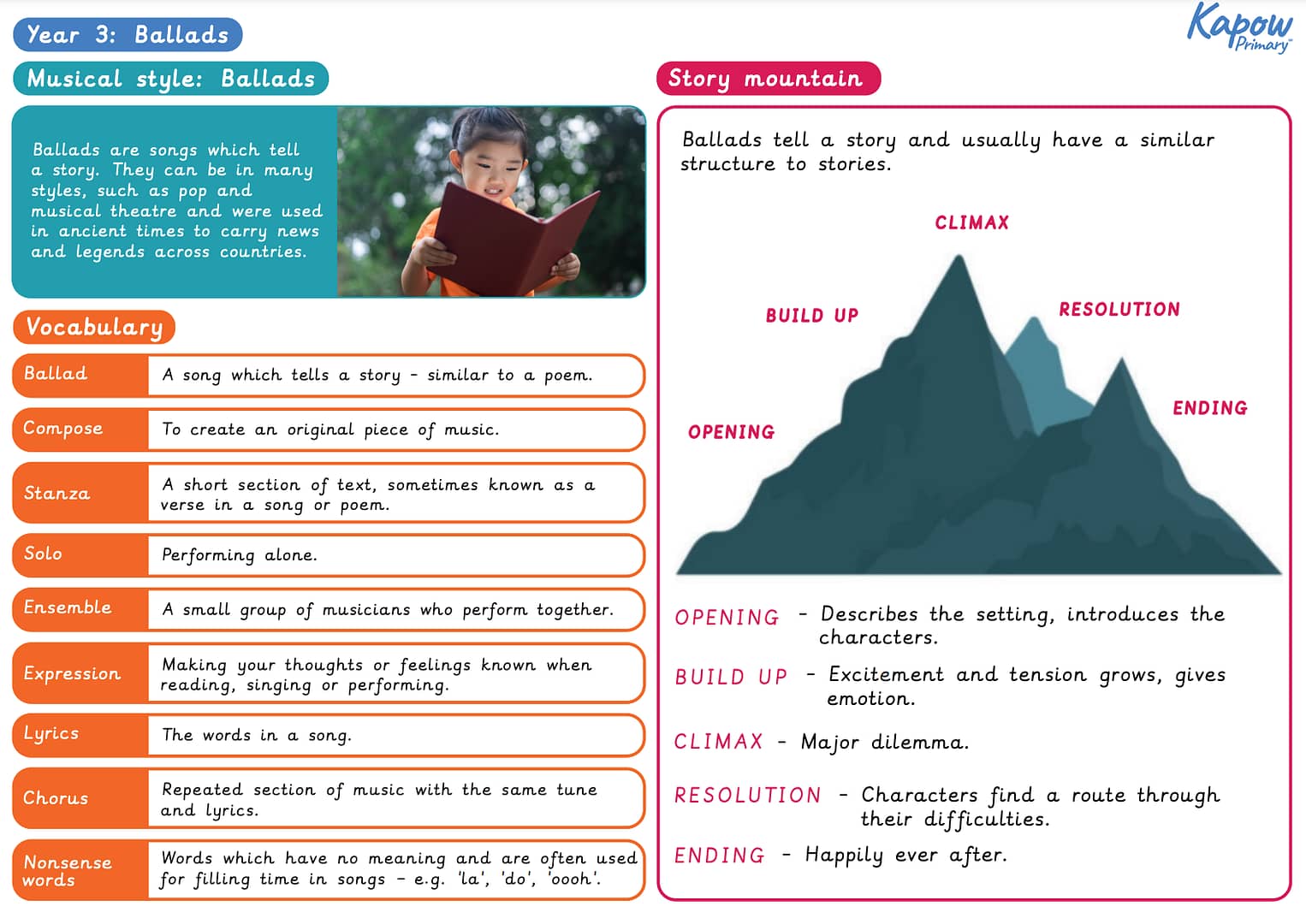
A Knowledge organiser that captures the essential knowledge and skills learnt throughout the unit Music, Year 3, Ballads.
This Music resource is designed to support the pupils as they explore ballads’ features and storytelling elements. It introduces key vocabulary such as verse, chorus, melody, dynamics, and tempo, helping the pupils understand how ballads convey emotion and narrative through lyrics and music. The pupils will also learn to identify and perform ballads, recognising their structure and expressive qualities.
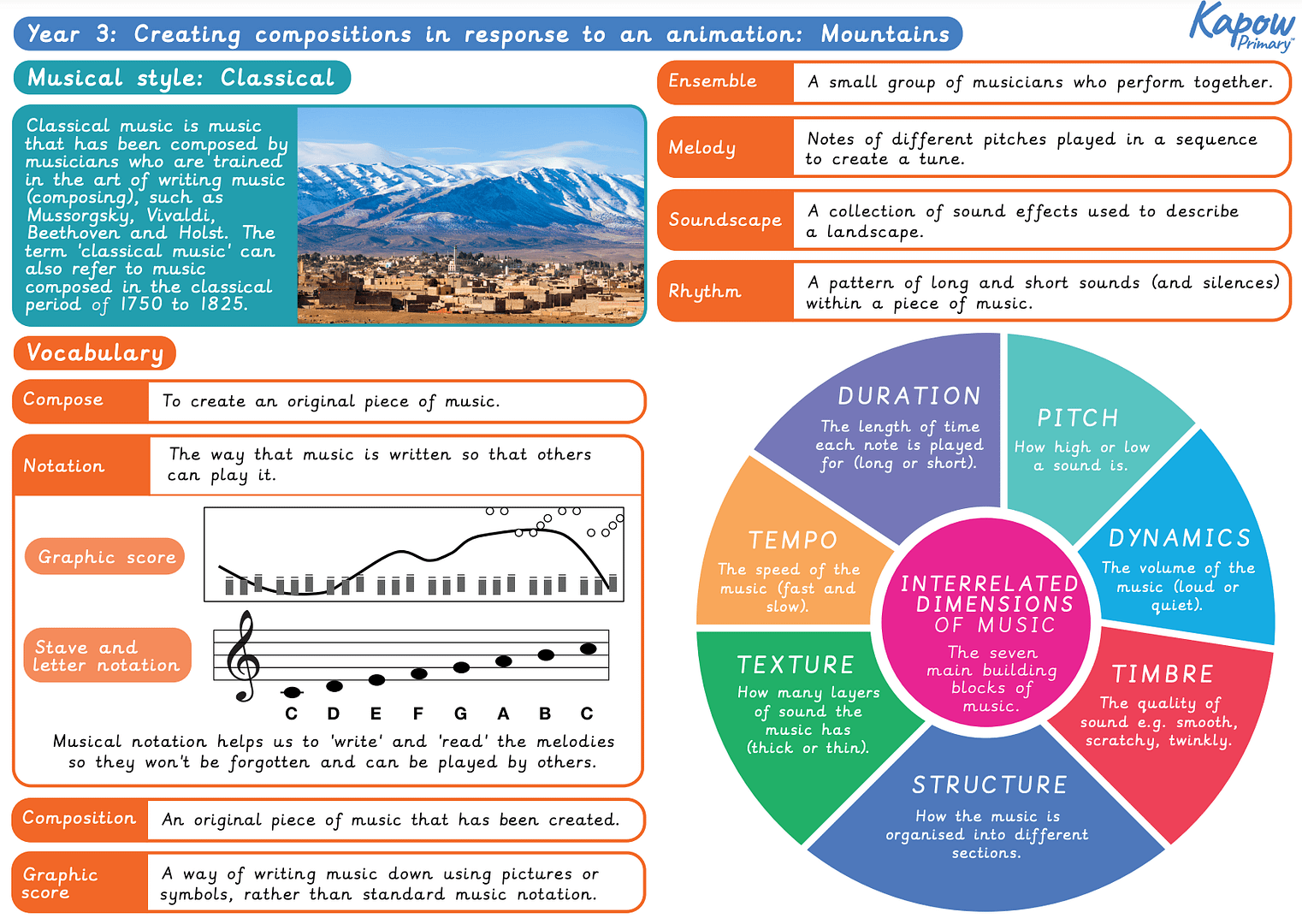
A Knowledge organiser that captures the essential knowledge and skills learnt throughout the unit Music, Year 3, Creating compositions in response to an animation (Mountains)
This Music resource is designed to support the pupils as they explore how musical elements can be used to represent landscapes, specifically mountains. It introduces key vocabulary such as tempo, dynamics, pitch, texture, and structure, helping the pupils understand how composers use these elements to create a sense of height, vastness, and movement. The pupils will also experiment with composition techniques to create their own musical representations of mountains.
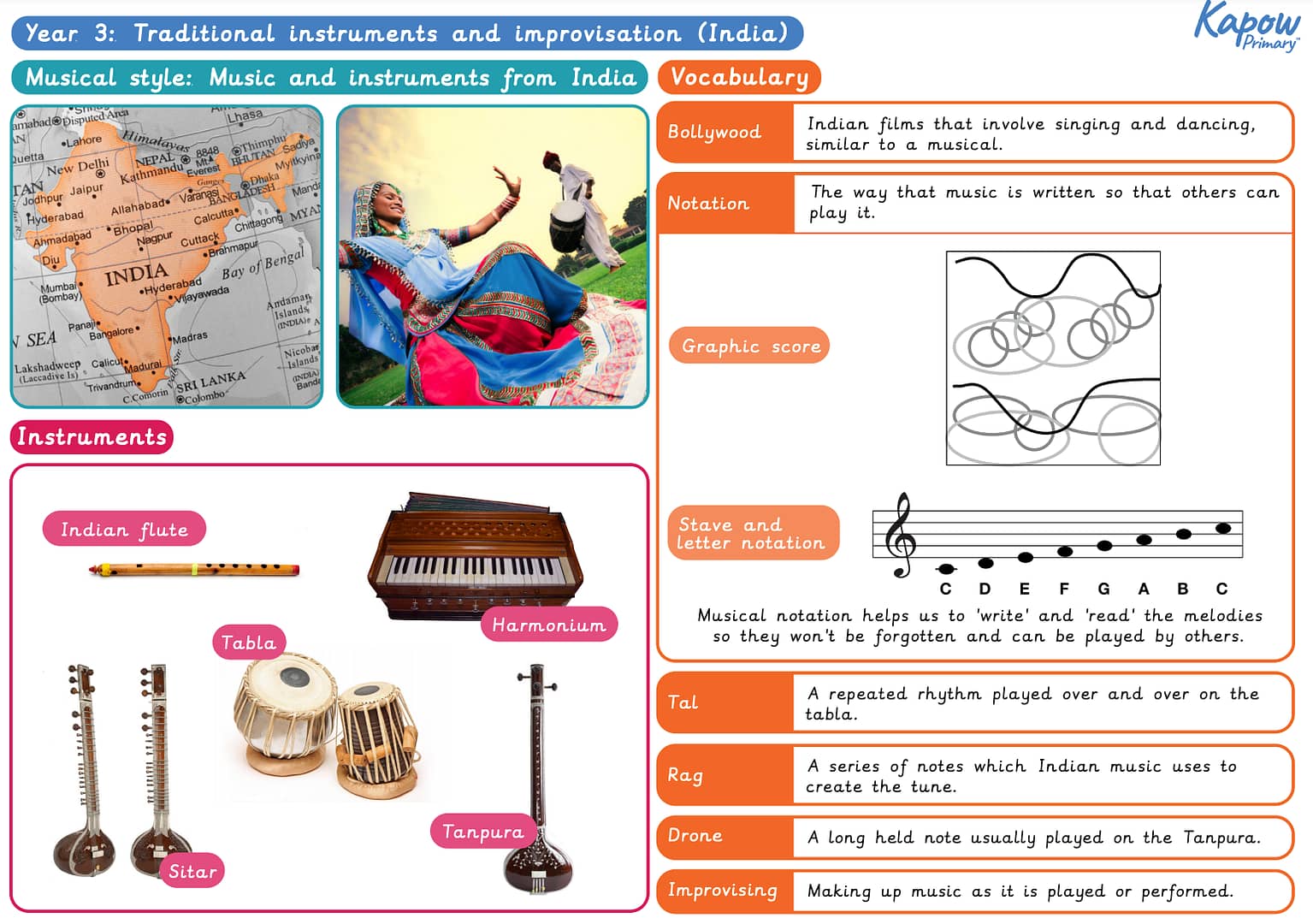
A Knowledge organiser that captures the essential knowledge and skills learnt throughout the unit Music, Year 3, Traditional instruments and improvisation (India).
This Music resource is designed to support the pupils as they explore traditional Indian music and its cultural significance. It introduces key vocabulary such as raga, tala, drone, pitch, and improvisation, helping the pupils understand how melody, rhythm, and harmony are used in Indian compositions. The pupils will also learn about traditional Indian instruments, such as the sitar, tabla, and tanpura, and how they contribute to the distinctive sound of Indian music.
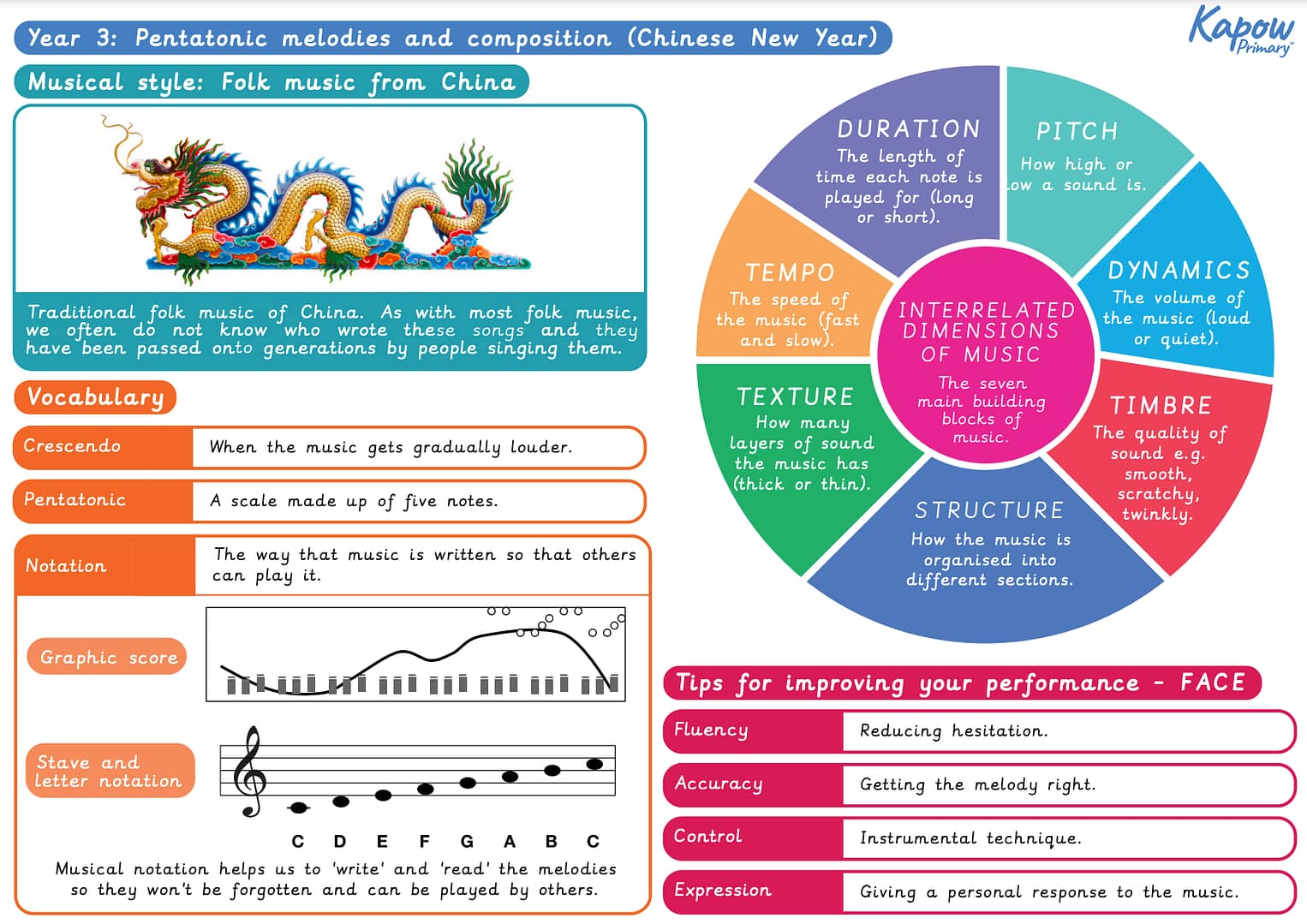
A Knowledge organiser that captures the essential knowledge and skills learnt throughout the unit Music, Year 3, Pentatonic melodies and composition (Chinese New Year).
This Music resource is designed to support the pupils as they explore traditional Chinese music and its cultural significance in Chinese New Year celebrations. It introduces key vocabulary such as pentatonic scale, tempo, dynamics, texture, and melody, helping the pupils understand how these musical elements are used in Chinese compositions. The pupils will also learn about traditional Chinese instruments, such as the guzheng, erhu, and dizi, and how they contribute to the distinct sound of Chinese music.
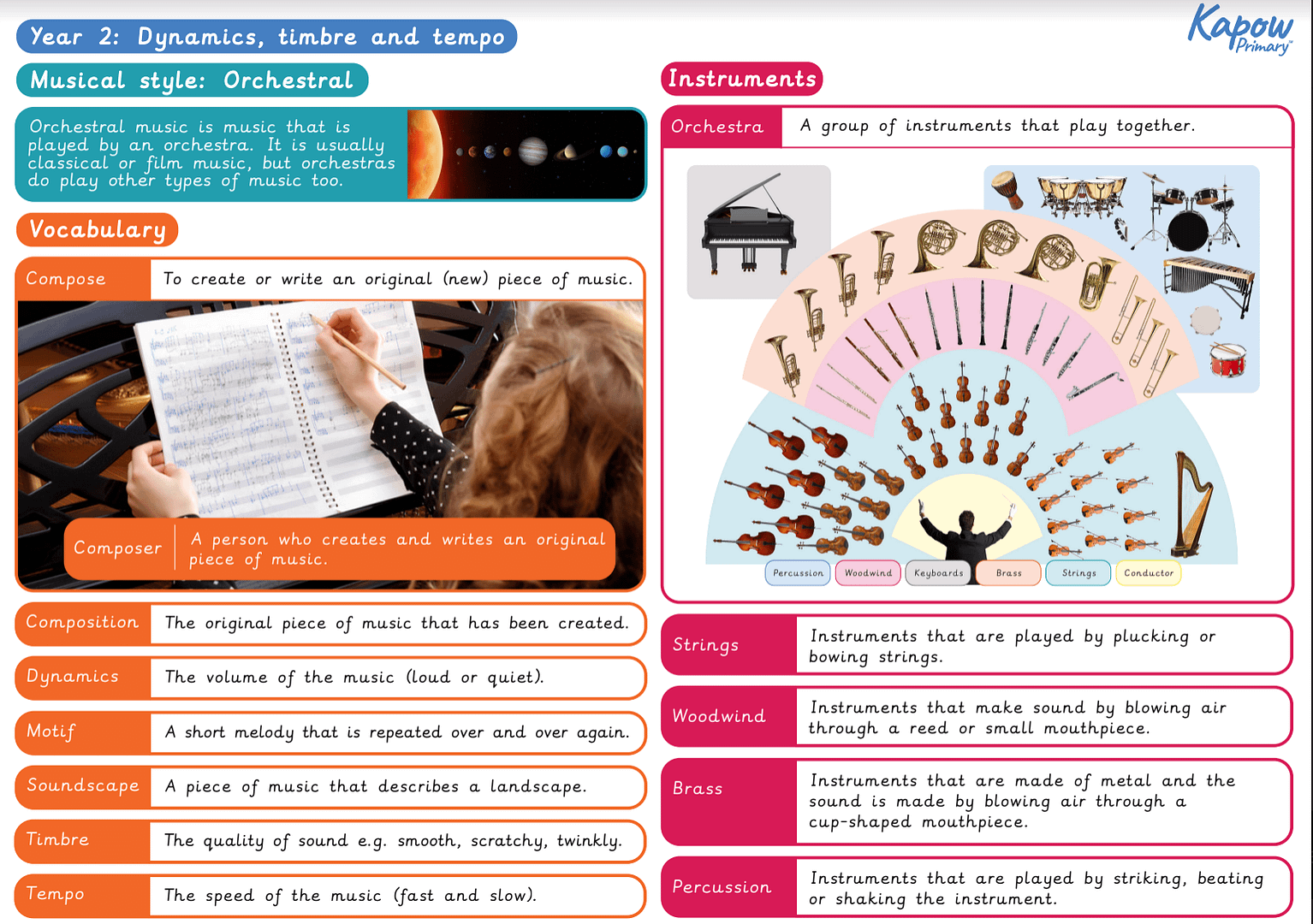
A Knowledge organiser that captures the essential knowledge and skills learnt throughout the now archived unit Music, Year 2, Dynamics, Timbre, Tempo and Motifs.
This Music resource is designed to support the pupils as they explore how different musical elements create expression and mood. It introduces key vocabulary such as dynamics, timbre, tempo, motif, and structure, helping the pupils understand how composers use these elements to shape music. The pupils will also learn how to recognise repeated motifs in compositions and how tempo and dynamic changes affect a piece’s character.
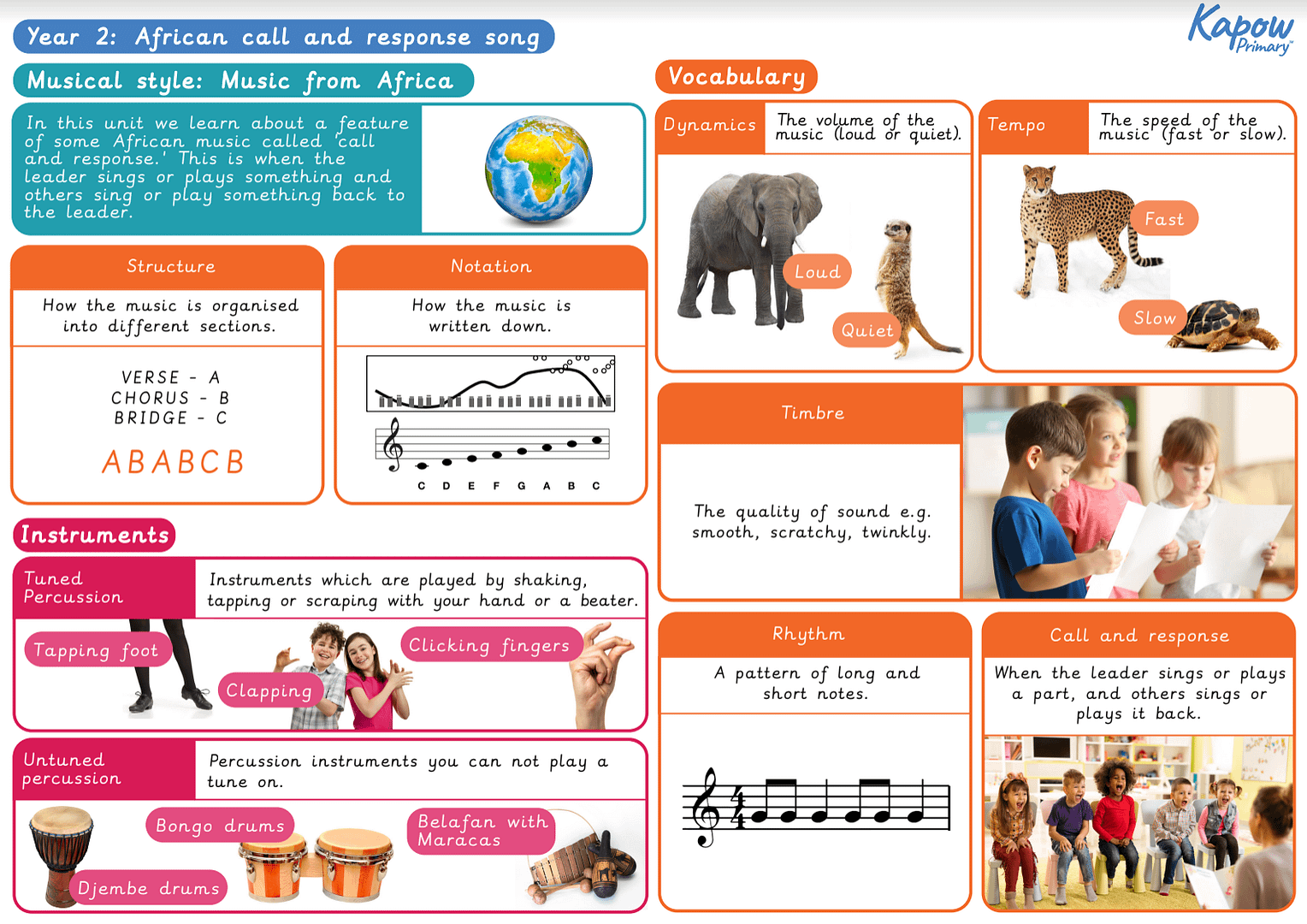
A Knowledge Organiser that captures the essential knowledge and skills learnt throughout the unit Archived unit: West African call and response song (Theme: Animals).
This unit introduces pupils to the musical form of call and response, a conversational style where a leader’s phrase is answered by a group. Pupils learn to perform a traditional Ghanaian song, developing their understanding of rhythm, tempo, dynamics, and timbre. They explore how different percussion instruments, such as bongo drums, djembe drums, cabasa, kalimba, and glockenspiel, can represent various animal sounds. Through singing, playing, and composing, pupils enhance their musical skills and cultural awareness.
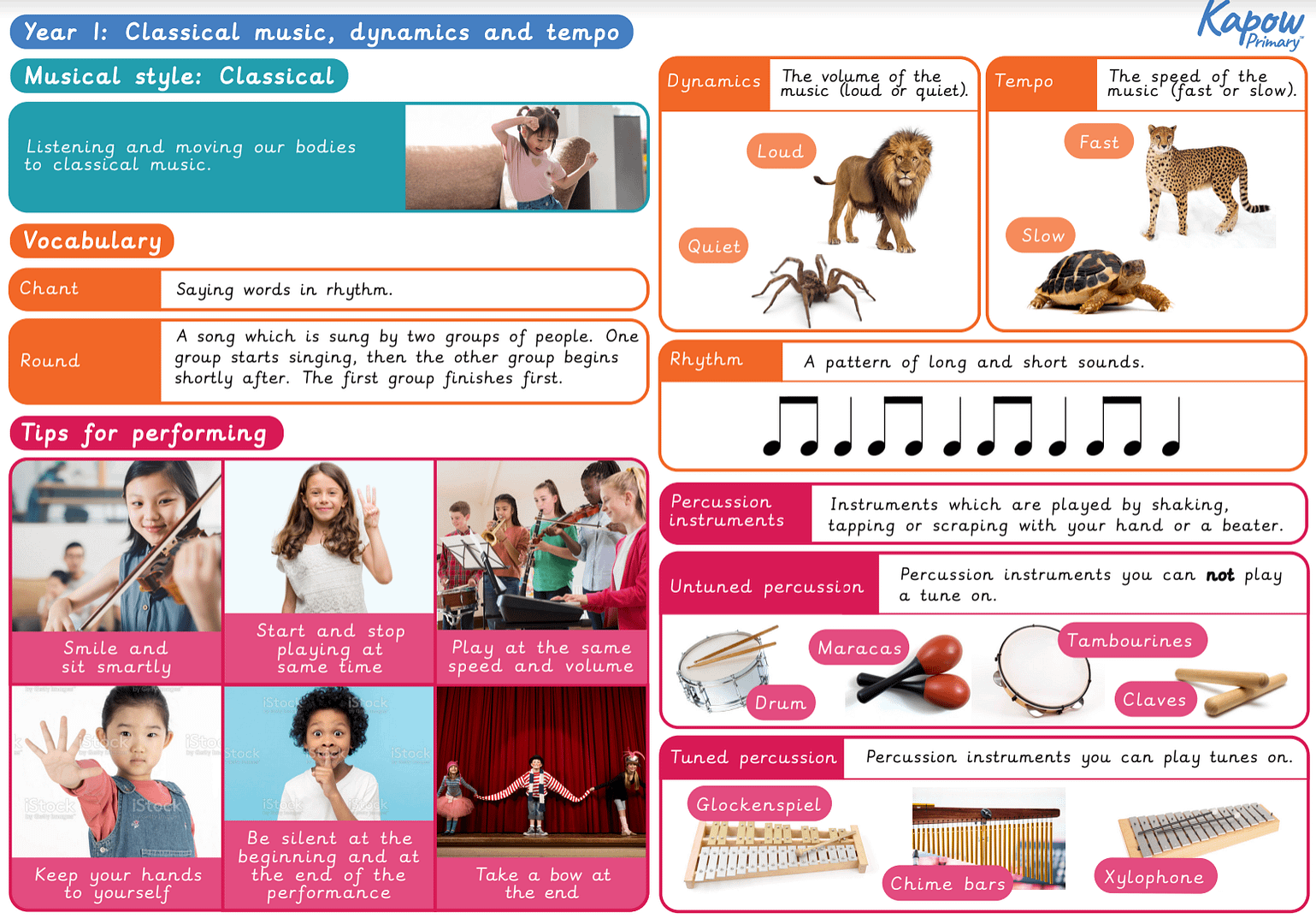
A Knowledge organiser that captures the essential knowledge and skills learnt throughout the now archived unit Music, Year 1, Classic music, dynamics and tempo (Animals).
This Music resource is designed to support the pupils as they explore how composers use musical elements to represent animals. It introduces key vocabulary such as tempo, dynamics, pitch, texture, and timbre, helping the pupils understand how music can create imagery and mood. The pupils will also study classical works by composers such as Camille Saint-Saëns, Sergei Prokofiev, and Modest Mussorgsky, analysing how they musically depict different animals.
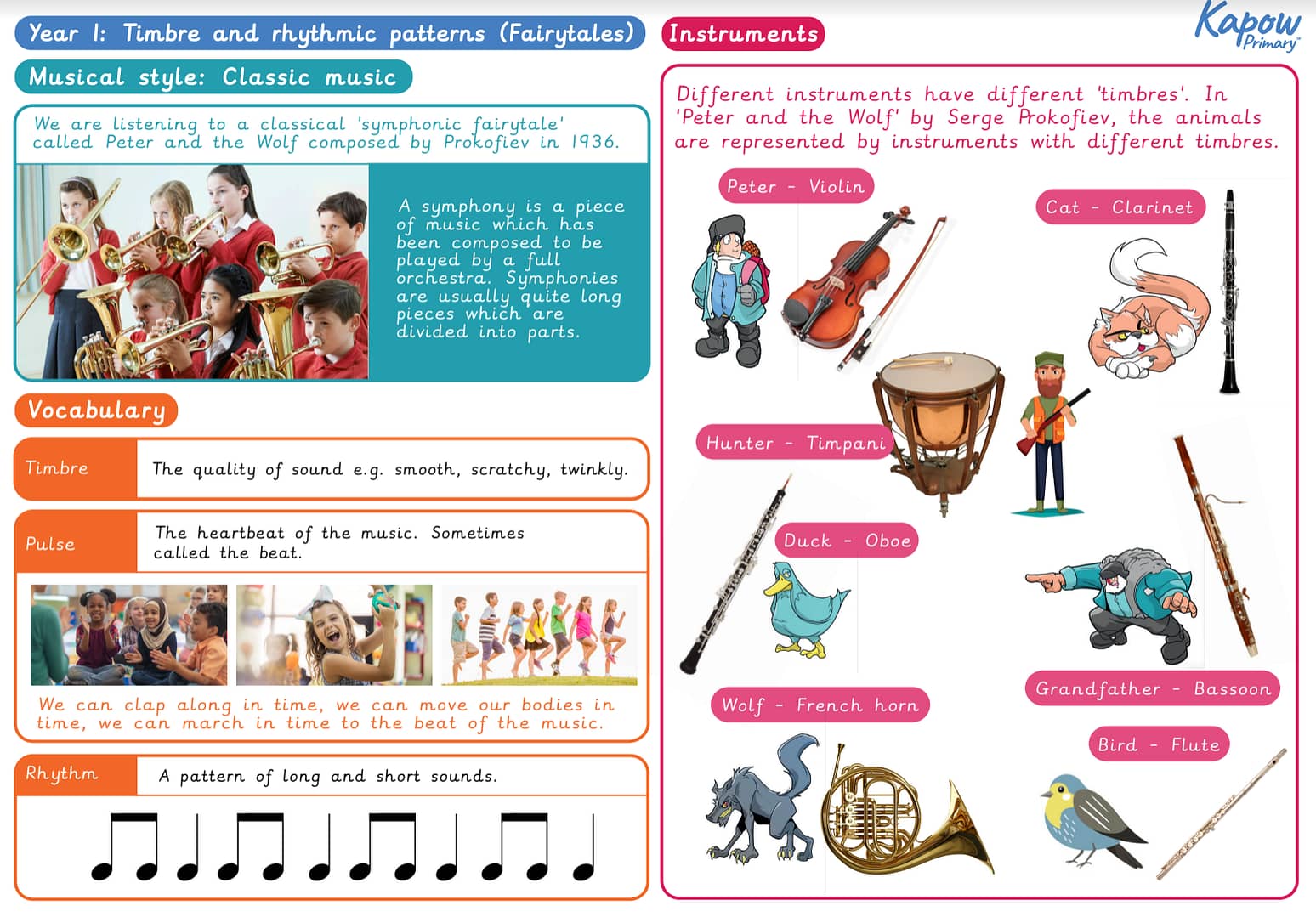
A Knowledge Organiser that captures the essential knowledge and skills learnt throughout the unit Archived unit: Timbre and rhythmic patterns (Theme: Fairytales).
This resource supports pupils as they explore musical storytelling by responding to and interpreting the sounds and rhythms found in fairytales. It introduces key vocabulary and concepts such as timbre, rhythm, and pulse, helping pupils identify different instrumental sounds and use them creatively to represent characters or actions. The unit encourages active listening and performance, using tuned and untuned percussion instruments to bring stories like Peter and the Wolf to life. Through these experiences, pupils develop confidence in performing, composing, and describing music expressively.



